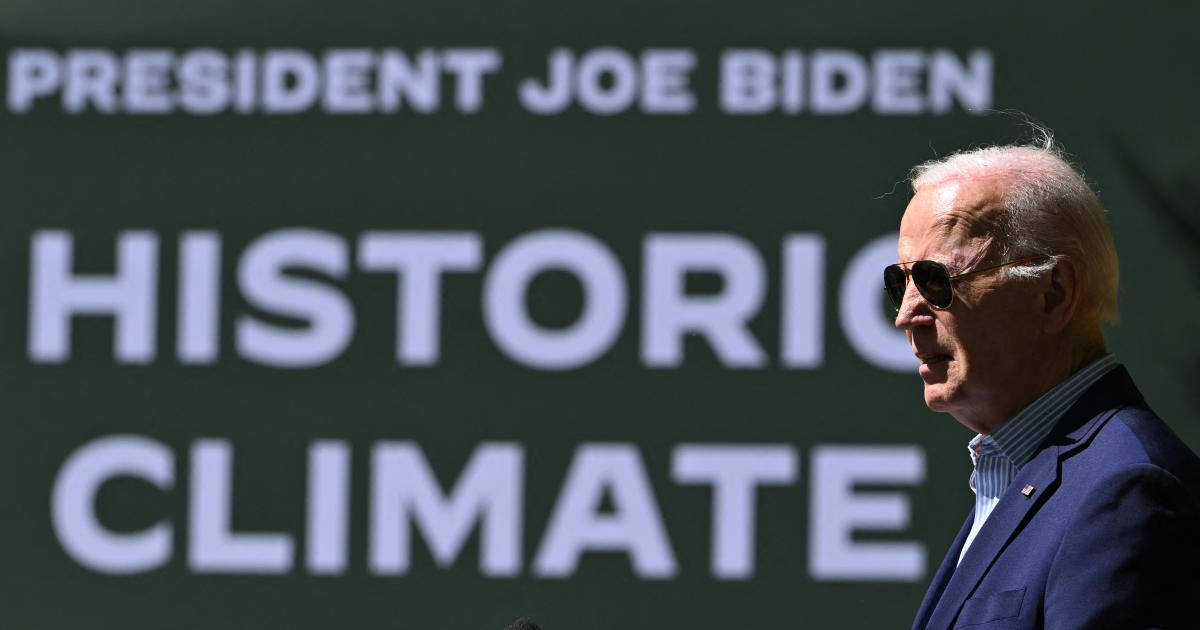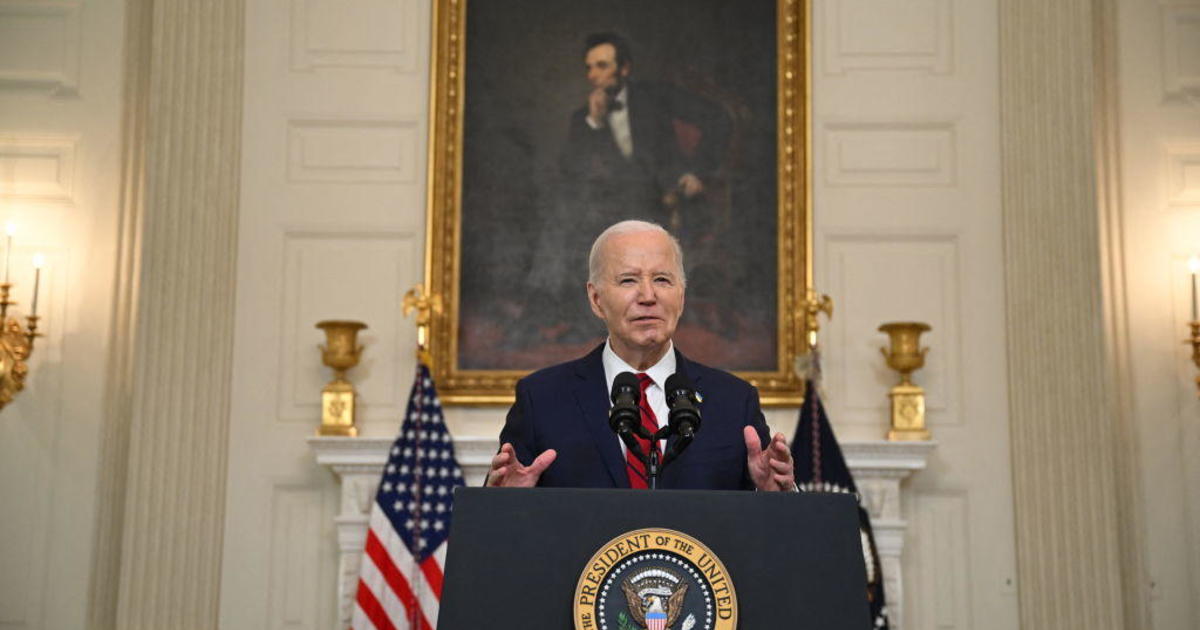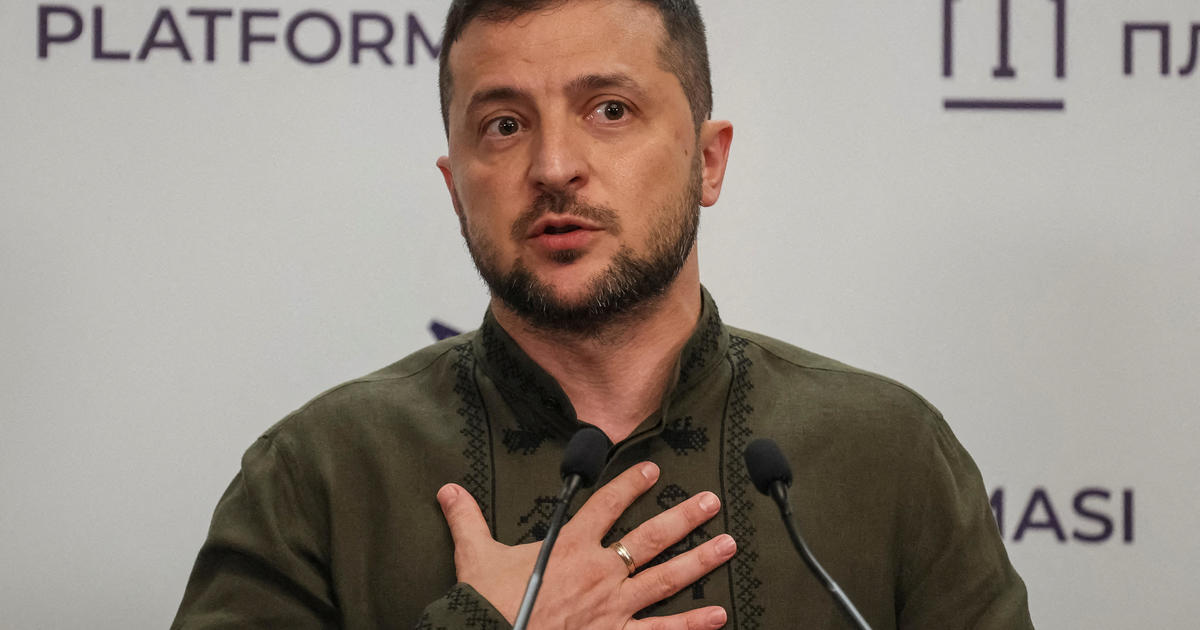What Biden will say in his first address to Congress
President Biden will tout his administration's accomplishments and preview his ambitious legislative agenda in his first address before a joint session of Congress on Wednesday, the eve of his 100th day in office. Mr. Biden is expected to offer details for his American Families Plan, a tax and spending bill focused on health care, child care and education.
According to senior administration officials, the plan focuses on four areas: education, child care, nutrition and child tax credits. The plan, according to the officials, aims to lower health care expenses, reduce child poverty, invest in education and produce a larger and healthier workforce.
The plan includes four years of free education: Two years of preschool for 3- to 4-year-olds, and two years of community college that would be open to everyone, regardless of income. The plan also calls for $1,400 in additional assistance to low-income students by expanding the maximum Pell Grant. Investments would be made in historically Black and historically tribal colleges and universities as well as in completion and retention programs at colleges and universities. There are also allocations for teacher training.
As for child care, the plan includes assistance programs for low- and middle-income families so that they have to spend no more than 7% of their income on childcare. It also calls for ensuring a $15 minimum wage for early childhood staff, improved training for child care workers and for national comprehensive paid family leave and medical leave programs.
The plan also includes an expansion of lunch benefits to all eligible children nationwide, making it so that children who receive the benefit during the school year can also receive it in the summer. It would also expand the number of schools that can provide free and reduced meals.
The plan would also extend certain key tax cuts in the American Rescue Plan, including the child tax credit, the earned income tax credit, and the child and dependent care tax credit. The plan calls for extending the child tax credit through 2025 and making it permanently refundable.
The president's proposal would cost roughly $1.5 trillion, and would fund free prekindergarten and community college, extend the child tax credit and create a national paid leave program. It's unclear whether Republicans will support the proposal, on top of Mr. Biden's $2 trillion American Jobs Plan, which is focused on infrastructure. Republicans have already indicated that the package is far too expensive.
The Biden administration is considering raising the top marginal income tax rate to 39.6%, up from the current 37%, and nearly doubling the capital gains rate for those making more than $1 million a year to pay for the American Families Plan. To fund the American Jobs Plan, the president is proposing raising the corporate tax rate from 21% to 28% and negotiating a global minimum tax rate for multinational corporations.
But Republicans have balked at any increase in taxes, and questioned the size of Mr. Biden's infrastructure proposal. A group of Senate Republicans, led by Senator Shelley Moore Capito, offered a $538 billion counteroffer on infrastructure, but some Democrats have dismissed this plan as unserious because of its price tag less than a third of the Democrats' proposal and it omits provisions related to green infrastructure.
"Even if the spending is popular, and a lot of it probably will be, the tax increases I think are going to be a hard sell, not just with people in the country or with Republicans, but I think for some Democrats too," Republican Senator John Thune told reporters on Wednesday.
Asked about the challenges of getting Republicans and even some Democrats to sign onto large tax increases, senior administration officials said they believe there is "broad support" for cutting taxes for middle-class families and for investments in child care, health care and families in a "fiscally responsible way" while "making sure that the wealthiest pay the taxes that they already owe." The officials stressed the idea of "tax fairness," and reiterated that Mr. Biden is open to hearing other ideas about how to finance these programs.
"Broadly speaking, this is a 10-year program," officials said, adding that some of the measures — like changes to Pell grants — can go into effect immediately while others phase in at different times and at different rates.
Some programs, like the child care programs, would have federal-state partnerships and would build on existing infrastructure in the states. If states decline to participate in something like the free community college programs, the federal government would instead partner directly with colleges in those states.
Meanwhile, congressional Democrats are also pushing Mr. Biden to include their priorities in his bill. A group of progressive and moderate House Democrats sent a letter to Mr. Biden and Vice President Harris asking to lower the Medicare eligibility age and expand its benefits as part of the American Families Plan. They also suggested improving Medicare benefits to cover dental, vision and hearing and argued that the government could pay for the expansion by negotiating with pharmaceutical companies to lower the price of prescription drugs.
Senator Bernie Sanders has sent his own letter to the president asking him to bring down the eligibility age to as low as 50 years old, expand benefits to include hearing, dental and vision care, implement a cap on out-of-pocket expenses and negotiate drug prices. Sanders told reporters on Tuesday that he hoped to include language to lower drug prices in the eventual legislation based on what Mr. Biden proposes, regardless of whether the president includes it in his plan.
"I believe that the bill that we're going to be writing will include negotiations with the pharmaceutical industry to lower drug prices, raising substantial sums of money, and using that to expand Medicare and lower the eligibility age," Sanders said.
Some Democrats have also called for making the child tax credit extension permanent, and expanding Medicaid.
"I think the important thing to remember here is that the legislature writes the law," Democratic Senator Brian Schatz said, noting that the child tax credit was not included in the initial American Rescue Plan proposed by the Biden administration. "What the executive branch is doing is offer a framework, and then we're going to do our job."
Restoring the SALT deduction, a priority among some Democrats, is not included in the plan. Officials said Mr. Biden recognizes it's an important issue for some, but that the elements of this particular plan are centered on investments for families and children, and ways to pay for it. "The SALT deduction is something that costs money," officials said, and it will be part of a conversation going forward.
The president is also likely to bring up progress against the COVID-19 pandemic, as the U.S. crossed his goal of 200 million shots in his first 100 days ahead of schedule. Americans 16 and older across the country are eligible for the vaccine, and the president has marked July 4 as a target date for getting the country back to a semblance of normalcy.
Mr. Biden will address a smaller audience than is typical for a joint session, as only invited members of Congress will be permitted to attend. The House sergeant-at-arms implemented the restrictions due to COVID-19, and Speaker Nancy Pelosi has given members of both parties an equal number of tickets.
"We went from 1,600 people to 200 people. That is a different dynamic, but it has its own worth," Pelosi told reporters on Tuesday.
Although many Republicans are not planning on attending, GOP Senator Lindsey Graham told reporters that he believes "we should go, out of respect for the office and for [Biden]."
Presidential addresses before Congress are typically partisan affairs. In 2009, a Republican congressman yelled that former President Obama was lying during his speech. Pelosi ripped up former President Trump's speech after his address last year. But the smaller guest list may also mean cooler temperatures.
"I don't think there are enough people there to be too tense," Graham said.
Presidential addresses also offer the opportunity for the president to tout his goals and accomplishments in front of a somewhat friendly audience, with members of their party eager to applaud and give standing ovations throughout the speech.
"I think it'll be an upbeat speech," Democratic Senator Joe Manchin, who is attending the speech, told reporters on Tuesday.
Republican Senator Tim Scott will deliver the rebuttal to Mr. Biden's speech later on Wednesday night. Scott told reporters Tuesday that he was preparing for his address with "lots of ice cream and cookies and sitting on the couch, hanging out a little bit."
"From my perspective, you figure out who your audience is, you figure out what you want to say, you try to find a way to say it well. And you lean into who you are," Scott said.
After the address on Tuesday, Mr. Biden and Harris will travel across the country to mark their 100 days in office and tout the American Jobs Plan and the American Families Plan. Mr. Biden and first lady Jill Biden will visit Atlanta on Thursday to mark 100 days since his inauguration, kicking off a ten-day nationwide tour.




